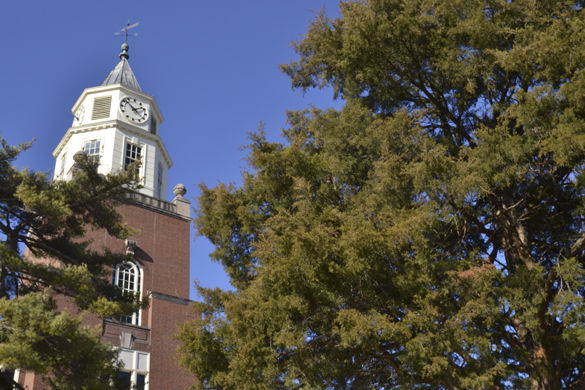On campus, privilege comes in many forms, SIU students say

Daily Egyptian file photo
September 15, 2016
Privilege isn’t just about having a fancy car and zero college loans, students quickly found out the most recent Salukis SPEAK discussion.
Salukis SPEAK, a discussion series organized by Student Affairs, covers a variety of topics to encourage staff, faculty and student feedback on topics of inequality.
Tuesday’s discussion was centered around perspectives of privilege regarding race, gender, sexuality and religion.
Advertisement
“Privilege in its simplest form is an unearned advantage,” said Deborah Barnett, assistant dean of students. “At SIUC, I think we try to equalize barriers for each student to meet the needs of their resources.”
She said privilege influences education in a number ways, including access to proper academics and resources.
Brianna Sinche, a wellness coordinator at Student Health Services, read a series of statements pertaining to privilege to the couple dozen gathered for the series.
Participants were told to take a step forward or backward, depending on whether or not a statement about privilege pertained to them.
For example, students were told to step forward if their families have health insurance, and to step back if they’ve ever gone to bed hungry because there wasn’t enough food in their house.
The exercise was a way to better understand what other people go through based upon their background and social standing, while also helping students recognize the privilege in their own lives.
Jarvell Williams, who helped facilitate the activity, said because of certain standards of oppression, African Americans often don’t have as much access to their history in school curriculums.
Advertisement*
The sophomore from Chicago studying psychology also said professionalism is often based upon the standards of white people who disregard inclusivity.
“Inclusivity is including others in a set system,” Williams said. “By having a system that is created by oppression, it’s impossible to have others carry out that system if it wasn’t made to also promote their cultures and ideas.”
Williams said many people who are privileged don’t acknowledge their advantages and don’t take the time to self-analyze and realize the opportunities and benefits they receive.
But Brittany Sievers, a graduate student in psychology from Brussels, said she makes a conscious effort to acknowledge her privilege as a white, cisgender, middle-class heterosexual.
“I think people see privilege as a micro problem,” Sievers said. “Oppression is ever-present and racism and discrimination have been around for so long in many ways and it’s just now getting more media exposure.”
She said though the university campus is diverse, not enough representation is given to minority groups on campus.
The discussion ended as participants and facilitators came up with ways to recognize privilege within the campus community.
These actions included promoting equality on campus, supporting unrepresented groups, having the courage to tell someone when they’re wrong and, more importantly, acknowledging that privilege exists.
“As individuals, as we begin recognizing our own privileges and understanding others experiences and barriers, I think it’s then when there will be change to our institutions and society,” Barnett said.
Salukis SPEAK’s next discussion, “#BlackLivesMatter Explored,” is at 5:30 p.m. Sept. 27 in the Student Services Building.
Diamond Jones can be reached at [email protected], 618-536-3325 or on Twitter @_dimewrites.
To stay up to date with all your southern Illinois news, follow the Daily Egyptian on Facebook and Twitter.
Advertisement








Yahaira Heller • Sep 21, 2016 at 8:06 am
A great way of supporting underrepresented groups on campus starts by including these underrepresented groups in the committees set up by the university to address these issues. I.e appointment to the core curriculum advisory board which USG has failed to make an appointment for as of yet. Secondly rather than concentrating on reaching equality we should be as an institution attempting to reach equity, which is different. Lastly, acknowledging ones privileges has less to do with self loathing and more to do with conscientious participation in our lives to attempt to affect change to those very systems of oppression that we are referring to, because our actions perpetuate them. Not to be confused with oppressor blaming, because often times the oppressors are unaware that they are perpetuating this system of oppression or these actions are seen as societal norms therefore not harmful.